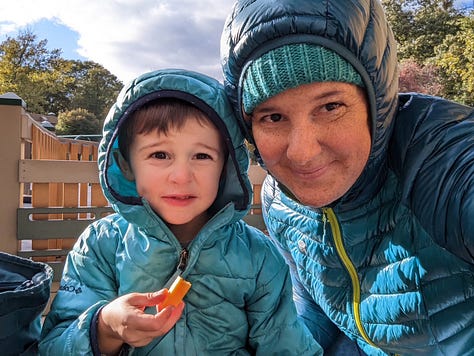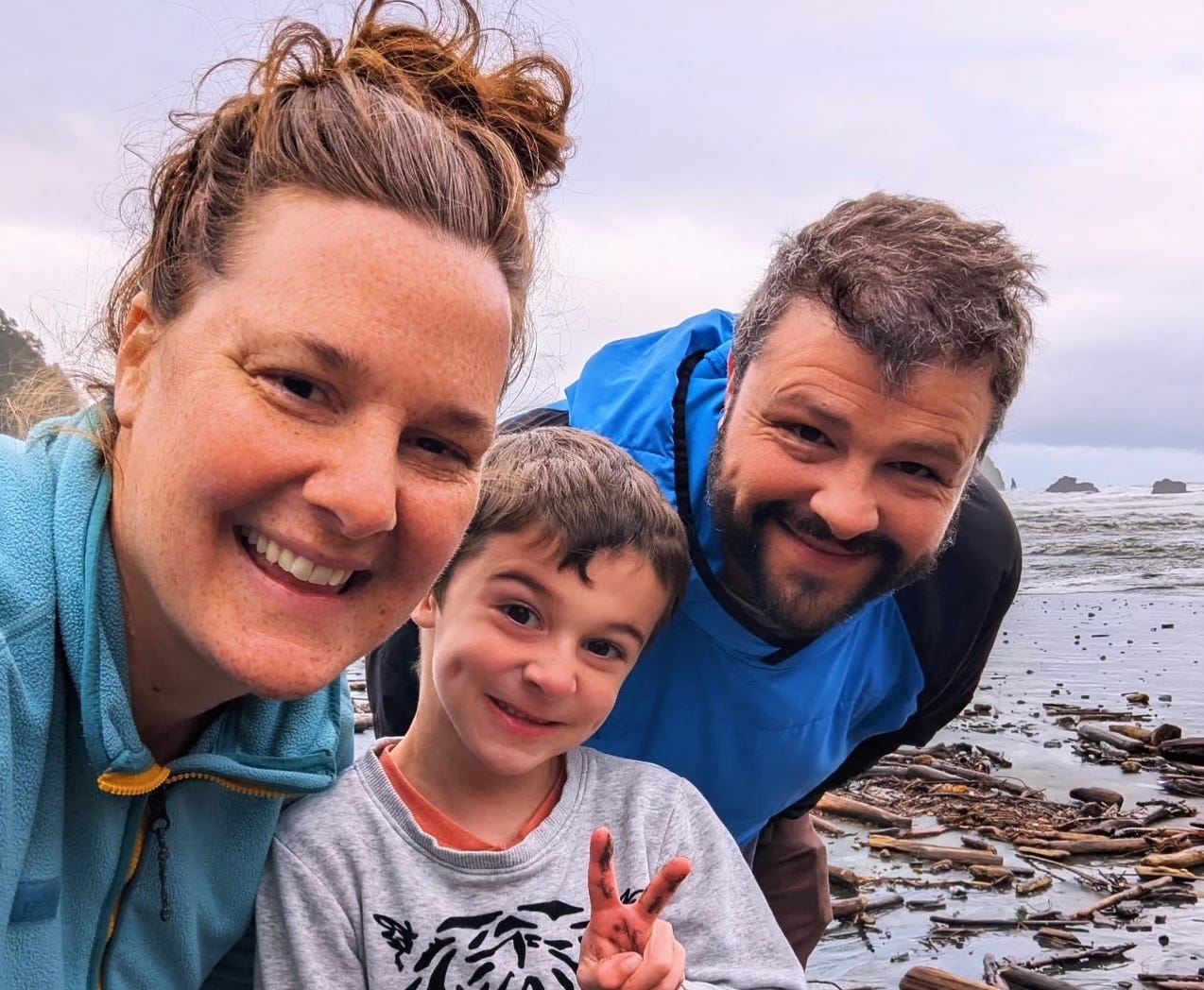Canzano: A boy, a boat, and a race against time
What would you do for your children?
I met William Jackson when he was 3 years old. He was into robots and dinosaurs. His parents were determined to save his life.
Insurance companies don’t think like families.
Neither does the pharmaceutical industry.
“Why do something for just one boy?” they ask.
“How can we not?” the rest of us think.
William, now 6, has Duchenne Muscular Dystrophy. It’s a genetic disorder. There’s no cure. No two cases are alike. The symptoms vary. The genetic mutations are different. Because of that, there aren’t billions of dollars to be made by saving his life. And kids with his condition don’t usually live past their 20s.
“It’s not something they write about in the baby books,” his mother told me.
That mom, Kati Falger, is the chief fiscal officer in the athletic department at Portland State. She works remotely. Her husband, Joe, works for Southern Oregon University. They live in Medford with their two children, William and his younger brother, Benji.
William is doing OK, I’m happy to report. He has friends. He loves video games and school. He sometimes uses a wheelchair to get around. And because his condition was diagnosed at such an early age, his case has always been laced with some hope.
“Today was a good day” has become the family motto.
A non-profit biotech firm that specializes in genetic treatments wants to take a crack at developing a CRISPR-based gene therapy specifically for William. There are some promising developments in the space. The non-profit and his family are trying to raise $2.2 million for the treatment. It’s a staggering figure. The first installment of $800,000 is due on May 1.
“This is a race against time,” Joe said.
People sometimes ask me how long it takes to write a column. I always answer the same — as long as it takes or as long as I have. I once wrote a 1,500-word deadline column off a college football game in 18 minutes. That’s all the time I had. But I’ve wrestled with this piece for a couple of hours, trying to wrap my head around the complexity and emotion of it. And yet, William’s story comes with a tightening deadline and real-world stakes.
One little boy, right?
Sounds simple enough. I don’t have to squint very hard to see him on the playground slide, giggling as he descends. Or taking his first steps as a toddler. Or reading his favorite book. Or making friends at school. Or even beating this blasted disease and becoming a beacon of hope for other families.



William’s parents discovered his condition after he developed a high fever as a baby. They took him to the hospital. His liver enzymes were elevated. There were a series of tests. His mom called the early diagnosis “a fluke,” but I wonder if anything in life is accidental. Because of this, there’s an unusual opportunity.
I have three daughters. On Saturday, the youngest participated in a youth track meet. She ran the 100-meter dash for the first time, got sand in her shoes in the long-jump pit, and then dusted herself off and ran the 400. After that, we scrambled off to her lacrosse game while she ate a Chick-fil-A sandwich in the car.
The middle daughter participated in an all-day choir event. She sang on stage, belting the lyrics from “This Little Light of Mine” from the left side of a riser. At one point during the performance, our eyes locked.
She smiled at me.
I had to wipe away tears.
The oldest daughter is a college senior now. I feel like I just dropped her off at the dorms about a month ago, but on Monday, she started her final quarter before graduation.
“Week was good!” she reported on Friday via text message. “I really enjoyed my classes.”
We’d do anything for our children, wouldn’t we? William’s father must feel helpless some days. Joe has decided to do something about it. He’s going to climb into a boat with two friends and embark on a nonstop rowing journey on the Rogue River in a couple of weeks. Their trip will cover 157 beautiful and grueling miles of landscape over 36 continuous hours, straight into the mouth of the Pacific Ocean.
“It’s nothing,” Joe said, “compared to what William faces every day.”
This column isn’t about the rebuild of the Pac-12 Conference or the Duke men’s basketball team blowing a double-digit lead in the Final Four. It won’t get the attention of House v. the NCAA or move the needle like Oregon’s run to the College Football Playoff last football season.
Spring college football is here. The NFL Draft is looming. The NBA Draft Lottery will soon decide who gets the No. 1 pick, and presumably the services of Cooper Flagg. I suppose I could have used this space today to write a column about any of those things, and you’d have been fine with it. But William Jackson’s story deserved this Sunday spotlight.
A boy.
A boat.
A race against time.
Kati and Joe are hoping to use the rowing trip to raise some money, get their son the genetic treatment, and see him grow up. This is about William’s quality of life. Or maybe just seeing him make the age of 25. If you feel moved to sponsor a mile of Joe’s rowing trip, donate, or learn more, visit www.WeRowForWilliam.org. Or maybe just share this column with friends.
If you’d like to send a word of encouragement for the family, drop it in the comment section. Kati, Joe, and some of their good friends subscribe to this publication. They reached out and asked me if I wouldn’t mind writing about it.
It’s just one little boy.
How could I not?



So grateful this column is not about the Pac 12, the Big 10, the Portal, the NBA, the NFL or much of your usual writings. They get, for this old lady, kind of boring.
So sad that this wonderful family and its delightful son, William, must be going through this life altering challenge which no one promised couldn't happen, but no one ever thought would be on their playlist when he was born.
Life is so often unfair and the results can be devastating. I hope your readers find it in their hearts to contribute to their donation site. A phrase spoken recently in regards to the political situation we're all facing the past few months seems to be perfect here:
Nobody can do everything, but everybody can do something.
I hope your readership helps contribute to the possibility of helping young William conquer this serious health issue and live a quality life, no matter how long it may be.
Thanks for writing such wonderful human interest stories.
This is why you’re the best in the business